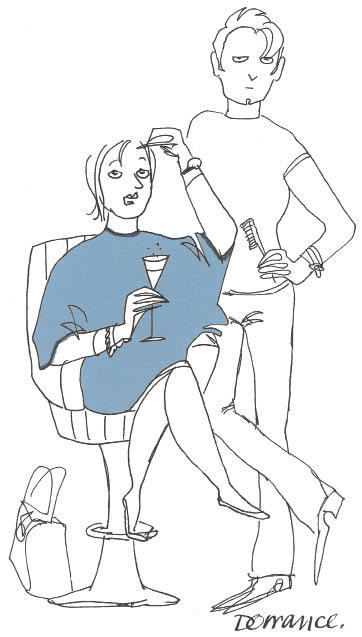The Kid is based on a true story and the book by Kevin Lewis, who had an horrific childhood taking in abuse, violence, poverty, starvation and abandonment by the social services. These books are called ‘misery memoirs’ and sell by the bucketload so I’ve even had a go myself. Now, I know what you’re thinking. You’re thinking: hang on, you had a thoroughly uneventful — nay, happy — middle-class upbringing in the Hampstead Garden Suburb, which doesn’t sound like an especially promising basis for a true story of cruelty, neglect, survival against the odds and the indomitable nature of the human spirit, but you would be wrong. Here is a taster: ‘I grew up in a house where no one was safe, particularly from music lessons (piano, mostly). I was one of four children, and we would all beg for the lessons to stop. “Stop, stop,” we would all cry. “This is middle-class abuse of the highest order and not one of us has any talent whatsoever…”’ It has already been described by The Bookseller as ‘just like Angela’s Ashes, but without the harrowing bits, or even the interesting bits’. I believe Julia Roberts wants to play me in the movie, but we’ll see. I think I’d prefer Penelope Cruz.
So, anyway, this is what we are dealing with here (she says, tiredly) and these books are all very well, I suppose, and mine is terrific — wait until you get to the bit where my mother wouldn’t allow me to watch Blue Peter until I’d tidied my room; the bitch! — but, as films, the material must be handled subtly and deftly and not defeat itself by going way over the top, as this so often does. It is true, but doesn’t seem so, whereas a film like Kes, say, wasn’t, but does. Do you see what I’m saying here? Do I need to spell it out for you? Do you want to buy my book? It’s available from all bad bookstores but only a few of the good ones, as they do tend to be pickier.
Directed by Nick Moran, who also directed Telstar, and adapted for the screen by Kevin Lewis himself, this has a wondrous cast who, alas, were obviously never asked to put a lid on it. Born on a council estate in south London, Kevin has an alcoholic father (Con O’Neill who, between random bouts of violence, sits about in a donkey jacket looking pissed) and a vicious mother, Gloria. Gloria is played by Natascha McElhone and, as far as performances go, this one is utterly demented. What was she thinking of? She is part rotten-toothed Waynetta Slob, part Halloween witch, and so ludicrously exaggerated that the audience at the screening I attended started laughing. This was not the intention, I think. This does the indomitability of the human spirit no favours, I think.
Now, even though Dennis and Gloria are the kind of couple who should have rusty nails hammered though their reproductive parts twice over, they have lots of kids, all of whom are brought up in squalor but as far as the violence goes, this is all saved for Kevin, for some reason. Kevin gets beaten with belts. Kevin gets his head smashed against walls. Eventually, a kindly school nurse spots his bruises, but foster homes don’t work, and after an idyllic period in a children’s home, he’s eventually returned to his family until he is hit across the head with an iron poker. This is what you have to sit through. This is what you have to endure. But for what? The redemptive, sunny ending, I guess, which does, indeed, arrive, but not before Kevin gets involved in bare-knuckle street fighting, all shown in rather glamorised slo-mo. My dears, I could barely watch, and scarcely did, and although there are a few nice-ish cameos — Ioan Gruffudd pops up, as do James Fox and Jodie Whittaker — it’s not enough to save this film from itself or give it any kind of emotional authenticity.
This is an overwrought adaptation, so laid on with a trowel that I’m betting the trowel, midway though the shoot, pleaded as follows: ‘Can’t I even have the one day off? How about just an afternoon?’ It just doesn’t cut it as an onscreen version of the events, unlike my own adaptation, which hopefully will. Indeed, as I’ve already said to Penelope: ‘You’ll have to see the piano lessons through to the end of term at least, I’m afraid. And who knows, you might even have to do extra maths on a Saturday.’ We shall see if she is brave enough.






Comments